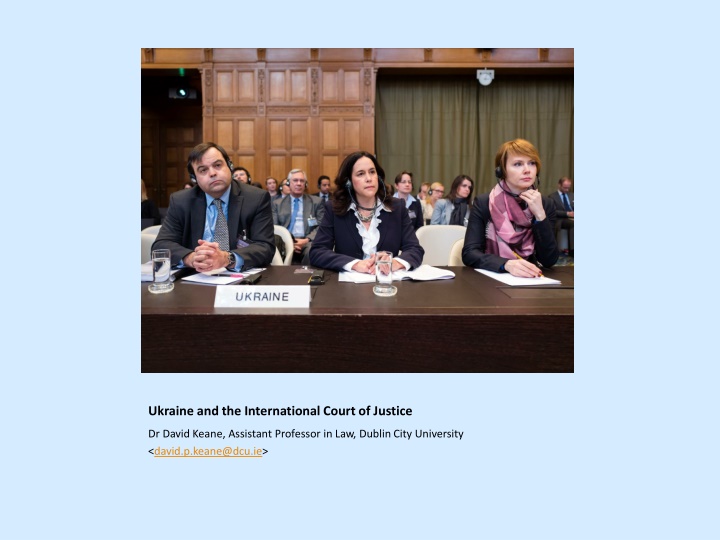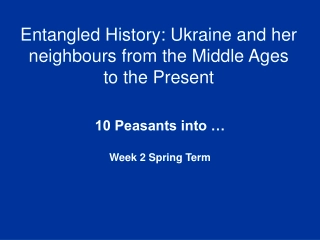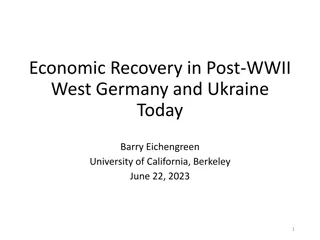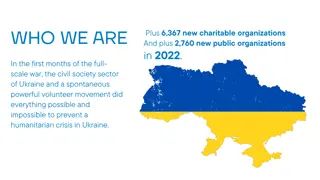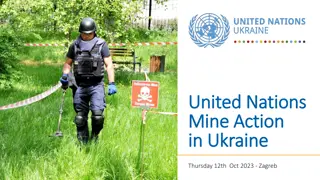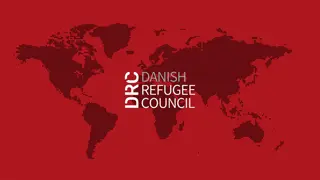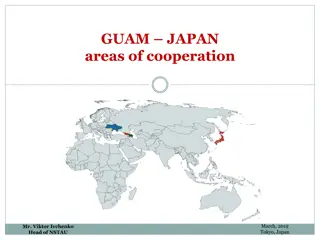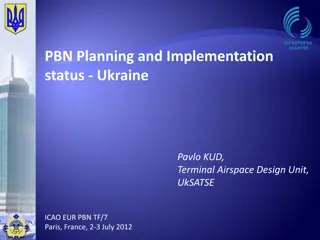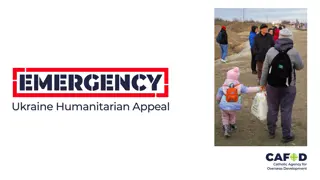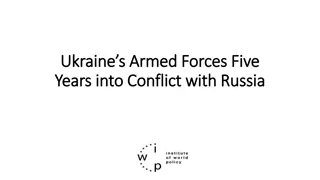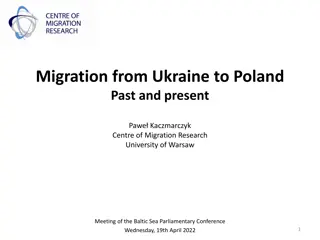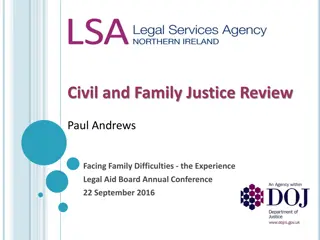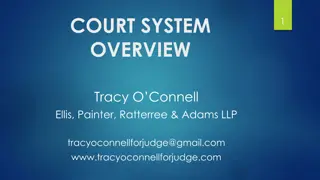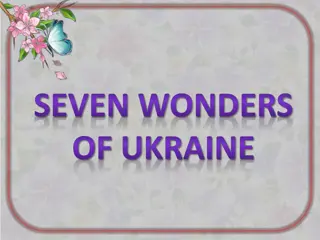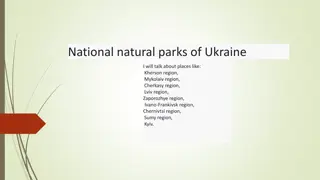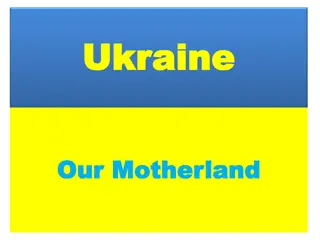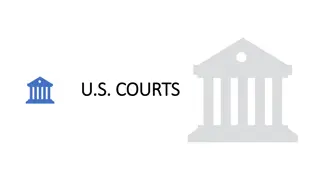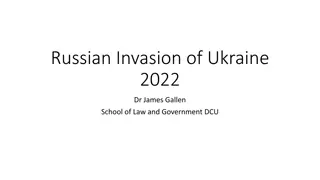Ukraine and the International Court of Justice
The International Court of Justice plays a significant role in settling legal disputes between countries. This includes cases such as Ukraine vs. Russian Federation, focusing on alleged violations of international conventions. The ongoing debate about genocide allegations in Ukraine raises challenging questions about the interpretation and application of international law.
Download Presentation

Please find below an Image/Link to download the presentation.
The content on the website is provided AS IS for your information and personal use only. It may not be sold, licensed, or shared on other websites without obtaining consent from the author.If you encounter any issues during the download, it is possible that the publisher has removed the file from their server.
You are allowed to download the files provided on this website for personal or commercial use, subject to the condition that they are used lawfully. All files are the property of their respective owners.
The content on the website is provided AS IS for your information and personal use only. It may not be sold, licensed, or shared on other websites without obtaining consent from the author.
E N D
Presentation Transcript
Ukraine and the International Court of Justice Dr David Keane, Assistant Professor in Law, Dublin City University <david.p.keane@dcu.ie>
ICJ and Russia The International Court of Justice (ICJ) is the principal judicial organ of the UN, established in June 1945 by the UN Charter The Court s role is to settle, in accordance with international law, legal disputes submitted to it by States (and to give advisory opinions on legal questions referred to it by authorized UN organs) Application of the International Convention on the Elimination of Racial Discrimination (Georgia v Russian Federation) (2008) Article 22 (compromissory clause) Any dispute which is not settled by negotiation or by the procedures expressly provided for in this Convention Ukraine v Russian Federation (2017) - Ukraine brought Russia before the ICJ for alleged violations of the International Convention for the Suppression of the Financing of Terrorism (ICSFT) and International Convention on the Elimination of Racial Discrimination (ICERD) However, the case is narrowly limited to violations of the ICSFT in Eastern Ukraine and ICERD in Crimea a campaign of cultural erasure directed against Crimean Tatars and ethnic Ukrainians in Crimea This case has proceeded to the merits phase for the first time in relation to both instruments
Genocide and the ICJ Article IX of the 1948 Genocide Convention: Disputes relating to the interpretation, application or fulfilment of the present Convention shall be submitted to the International Court of Justice Currently before the Court in The Gambia v Myanmar where it is alleged Myanmar perpetrated genocide against the Rohingya Is Russia committing genocide in Ukraine? Article II: In the present Convention, genocide means any of the following acts committed with intent to destroy, in whole or in part, a national, ethnical, racial or religious group, as such: (a) Killing members of the group; (b) Causing serious bodily or mental harm to members of the group; (c) Deliberately inflicting on the group conditions of life calculated to bring about its physical destruction in whole or in part ( ) However shocking the current invasion, there is no basis in fact to argue that Russia is waging it to destroy (ethnic) Ukrainians as a group However, Ukraine is arguing there is a dispute between Ukraine and the Russian Federation within the meaning of Article IX relating to the interpretation, application or fulfilment of the Genocide Convention
Ukraine v Russian Federation (26 February 2022) The Russian Federation claims that acts of genocide have occurred in the Luhansk and Donetsk oblasts of Ukraine, and has undertaken military and other actions against Ukraine with the express purpose of preventing and punishing such alleged acts of genocide On 21 February, President of the Russian Federation referred to horror and genocide allegedly suffered by Donbas communities at the hands of Ukraine, as the basis to take a long overdue decision and to immediately recognise the independence and sovereignty of the Donetsk People s Republic and the Luhansk People s Republic On 23 February, in remarks to the United Nations Security Council, the Permanent Representative of the Russian Federation asserted that [t]he goal of the military operation in Donbas is protection of people who have been victimized and exposed to genocide by the Kiev regime On 25 February, Russian Foreign Minister Sergey Lavrov also justified Russia s military actions against Ukraine as preventing the neo-Nazis and those who promote methods of genocide from ruling this country Russian Ambassador to the EU we can turn to the official term of genocide as coined in international law. If you read the definition it fits pretty well.
Ukraines arguments Ukraine strongly denies Russia s allegations of genocide and denies any attempt to use such manipulative allegations as an excuse for Russia s unlawful aggression . It argues under the Genocide Convention, Russia s claims are baseless and absurd A dispute has therefore arisen relating to the interpretation and application of the Genocide Convention, as Ukraine and Russia hold opposite views on whether genocide has been committed in Ukraine and whether Article I of the Convention provides a basis for Russia to use military force against Ukraine to prevent and to punish this alleged genocide Russian special military operation is incompatible with the Convention and violates Ukraine s right to be free from unlawful actions, including military attack, based on a claim of preventing and punishing genocide that is wholly unsubstantiated The duty to prevent and punish genocide in Article I of the Convention necessarily implies that this duty must be performed in good faith and not abused Russia s actions erode the core obligation of Article I of the Convention and undermine its object and purpose they turn the Convention on its head ; an abuse by one State Party to all States Parties
Provisional Measures a. Russia shall immediately suspend the military operations commenced on 24 February 2022 that have as their stated purpose and objective the prevention and punishment of a claimed genocide in the Luhansk and Donetsk oblasts of Ukraine b. Russia shall immediately ensure that any military or irregular armed units which may be directed or supported by it take no steps in furtherance of the military operations c. Russia shall refrain from any action and shall provide assurances that no action is taken that may aggravate or extend the dispute or render this dispute more difficult to resolve d. Russia shall provide a report to the Court on measures taken to implement the Court s Order one week after such Order and then on a regular basis fixed by the Court The world awaits your actions Professor Koh, Representative for Ukraine
